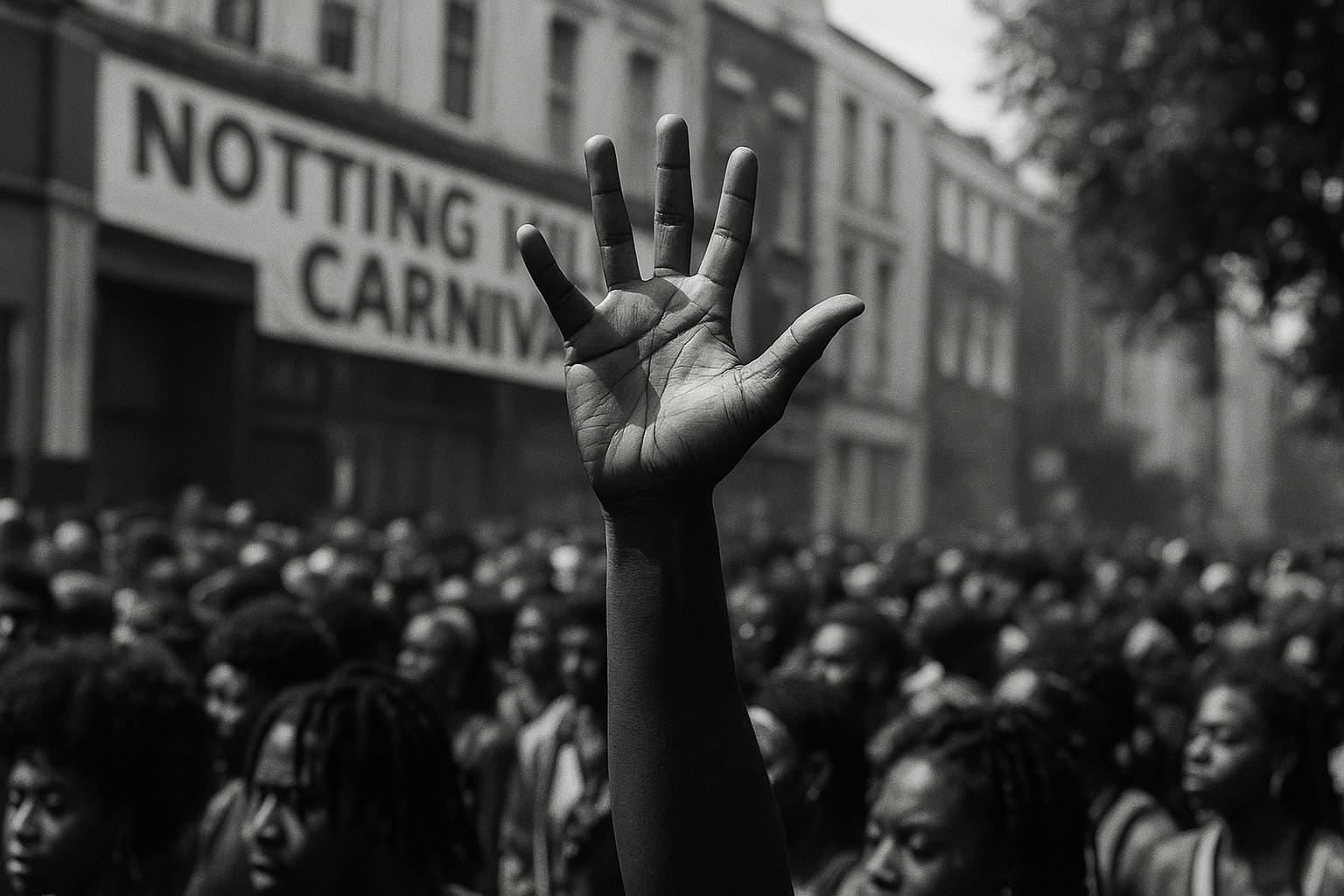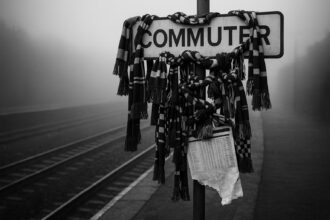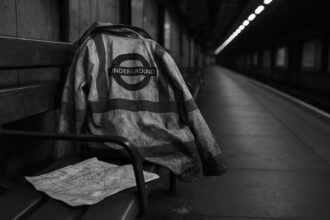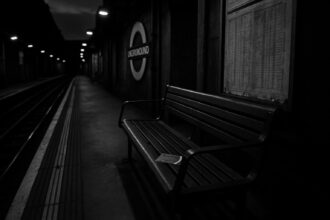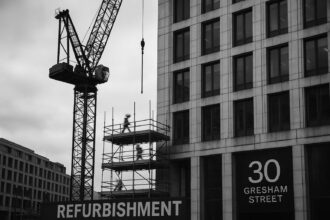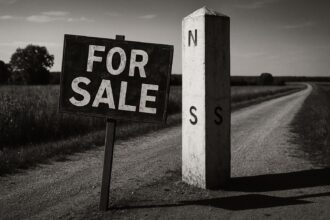Notting Hill Carnival is depicted as cultural infrastructure and a force for social healing in London, with its value lying as much in belonging and resilience as in spectacle—yet the festival’s scale also raises safety and policing questions.
Notting Hill Carnival cannot be reduced to pounds and pence. It is cultural infrastructure, a form of healing that has threaded itself through London life for decades. The lead commentary argues that the festival offers a space for gathering, stress relief, identity celebration and solidarity—outcomes public health bodies describe as crucial in a city that can leave people feeling isolated or under pressure. The author’s core claim—that the carnival’s value lies in its social and psychological dividends as much as its spectacle—resonates with the BBC’s broader profile of the event. Notting Hill Carnival is described as a world-renowned flagship celebration of Caribbean culture in London, celebrated for its history, music, dance and food and for drawing visitors from around the globe. The article also recognises the scale’s twin edge: the vibrancy and the security and crowd-management challenges that come with it.
Beyond its healing potential, the festival’s magnitude triggers substantial public-safety planning and policing. A Guardian report from 2011 chronicles attendance running into hundreds of thousands, with up to a million people over the two days, and notes that thousands of officers are mobilised to manage crowds, safety and potential violence. The piece emphasises that carnival is more than entertainment: it is a social ritual through which Londoners reclaim streets and celebrate Caribbean and broader British cultures, while also revealing arrests, disruptions and policing tensions that accompany such a landmark event. More recently, ITV’s coverage in 2024 framed the event as a countrywide spectacle, warning that around a million visitors were expected and that a large police operation would be in place to ensure safety. Organisers stress the festival’s inclusive ethos and the contribution of volunteers and performers to a parade of colour, music and cuisine, even as concerns about crime and crowd safety persist.
Scholarly and policy perspectives offer nuance on what the Notting Hill Carnival represents beyond spectacle. A chapter in a Springer volume on urban cultural heritage festivals argues that events like Notting Hill Carnival act as catalysts for community cohesion and belonging by linking people to place, heritage and one another, while also acknowledging challenges such as crowd safety, logistics and the spectre of gentrification. The analysis highlights how such festivals can provide spaces for marginalised voices and foster intercultural exchange, yet it also notes the ongoing need to balance spontaneity with planned safety and organisational gatekeeping if cohesion is to endure. Complementing this, a sponsored Health Affairs piece argues that social connection and community have tangible health benefits, citing rising loneliness as a public health concern and outlining frameworks for elevating social connectedness through institutions, local initiatives and inclusive events. While rooted in a United States context, the piece reinforces the broader point that cultural festivals like Notting Hill Carnival contribute to community health by strengthening belonging and resilience.
 Reference Map:
Reference Map:
Source Panel
- Evening Standard: Notting Hill Carnival 2025: community, August Bank Holiday (lead article)
- The Guardian: Notting Hill Carnival revellers and police
- Springer: Urban cultural heritage festivals and community cohesion (chapter on Notting Hill Carnival’s role in place-making and belonging)
- BBC News: Notting Hill Carnival is known the world over as a flagship celebration of Caribbean culture in London
- ITV News: One million people expected at Notting Hill Carnival amid heavy police presence
- Health Affairs: The Healing Effects of Social Connection and Community (sponsored content)
- PMC: The Realist Evaluation of a community-based music programme (Scotland)
Source: Noah Wire Services
- https://www.standard.co.uk/comment/notting-hill-carnival-2025-community-august-bank-holiday-b1243927.html – Please view link – unable to able to access data
- https://www.theguardian.com/culture/2011/aug/29/notting-hill-carnival-revellers-police – Notting Hill Carnival draws hundreds of thousands of revellers, with up to a million people attending across the two days. The police mobilise thousands of officers to manage crowds, safety and potential violence. Organisers stress that the carnival enables Londoners to reclaim streets and celebrate Caribbean and wider British cultures. The report chronicles arrests, disruptions, and policing challenges while emphasising the event’s role as a public celebration of resilience and community. It portrays carnival as more than entertainment—a social ritual that fosters identity, solidarity and resistance to prejudice, highlighting its enduring significance within London’s multicultural landscape for residents and visitors.
- https://link.springer.com/chapter/10.1007/978-3-319-29544-2_11 – This chapter examines how urban cultural heritage festivals, notably London’s Notting Hill Carnival, act as catalysts for community cohesion and identity. It argues that the carnival connects people to place, heritage and each other, reinforcing belonging while presenting challenges such as crowd safety, logistics, and gentrification. The analysis notes its longevity—as Europe’s largest street festival—and its role in intercultural exchange, cross-community collaboration, and economic spin-offs. It emphasises how such festivals act as spaces for marginalised voices, countering tension through shared celebration. Yet it acknowledges organizational gatekeeping and the balancing act between spontaneity and planned safety in sustaining cohesion and resilience.
- https://www.bbc.co.uk/news/articles/cj62917gw1no – Notting Hill Carnival is known the world over as a flagship celebration of Caribbean culture in London. The article profiles visitors from the United States and beyond who travel to participate, praising the festival’s scale, safety measures and vibrant visual spectacle. It emphasises Notting Hill as a global cultural magnet, drawing attention to its history, music, dance and food. The piece highlights how the event showcases diversity, fosters intercultural exchange and invites participation from a wide audience, while acknowledging ongoing concerns about crowd management and security that accompany such large-scale street events. It frames the carnival as central to London.
- https://www.itv.com/news/london/2024-08-24/one-million-people-expected-at-notting-hill-carnival-amid-heavy-police-presence – Notting Hill Carnival, the UK’s longest-running street festival, is expected to attract around a million visitors this August. The report describes a large-scale police operation and extensive safety planning, with thousands of officers on duty to ensure a secure celebration of Caribbean culture. It presents carnival as the country’s greatest community-led event, drawing participants from across Britain and abroad. Organisers emphasise its inclusive ethos, the role of volunteers and performers in creating a vibrant parade of costume, music and food. The piece also recognises concerns about crime and crowd safety, while underscoring the festival’s enduring importance for London’s cultural life.
- https://www.healthaffairs.org/sponsored-content/the-healing-effects-of-social-connection-and-community – This sponsored Health Affairs piece argues that social connection and community have tangible health benefits, particularly in mitigating loneliness and improving wellbeing. It cites data showing rising loneliness and its links to mental and physical health, and presents a framework for elevating social connectedness as a health priority. The article outlines strategies such as engaging communities through institutions, local initiatives and inclusive events; emphasises that stronger social ties can reduce violence and improve resilience to hazards. While framed for United States, the principles apply broadly, reinforcing that cultural festivals like Notting Hill Carnival contribute to community health by strengthening belonging.
- https://pmc.ncbi.nlm.nih.gov/articles/PMC7187212/ – The realist evaluation assesses a community-based music programme aimed at improving health and well-being among disadvantaged young people in Scotland. It combines quantitative measures and qualitative insights to explore how engagement with music services enhances self-confidence, engagement and mental well-being. The authors identify mechanisms such as trust-building, safe spaces and tailored activities as drivers of positive change, yielding improvements in wellbeing, social inclusion and participation. The study highlights the value of co-produced, youth-centred music initiatives to address health inequalities. Although not about Notting Hill Carnival specifically, the findings support how music and collective activities promote resilience and social connection broadly.
Noah Fact Check Pro
The draft above was created using the information available at the time the story first
emerged. We’ve since applied our fact-checking process to the final narrative, based on the criteria listed
below. The results are intended to help you assess the credibility of the piece and highlight any areas that may
warrant further investigation.
Freshness check
Score:
7
Notes:
 The commentary on the Evening Standard page appears to be newly posted (page shows “2 minutes ago”) and is framed around Notting Hill Carnival 2025.
The commentary on the Evening Standard page appears to be newly posted (page shows “2 minutes ago”) and is framed around Notting Hill Carnival 2025.  However, the narrative is not novel: very similar descriptions and claims about Carnival’s social value, large attendance and heavy policing have appeared many times before (e.g. The Guardian, 29 Aug 2011).
However, the narrative is not novel: very similar descriptions and claims about Carnival’s social value, large attendance and heavy policing have appeared many times before (e.g. The Guardian, 29 Aug 2011).  Several recent items (July–Aug 2024 and 2025) republished or summarised the same themes and figures (attendance estimates of c.1–2 million; economic-impact figures ranging ~£300m–£396m–“almost £400m”). If similar material was published more than 7 days earlier (e.g. the 2011 Guardian piece and multiple 2024/2025 reports), this should be flagged as recycled context rather than a wholly fresh investigative report.
Several recent items (July–Aug 2024 and 2025) republished or summarised the same themes and figures (attendance estimates of c.1–2 million; economic-impact figures ranging ~£300m–£396m–“almost £400m”). If similar material was published more than 7 days earlier (e.g. the 2011 Guardian piece and multiple 2024/2025 reports), this should be flagged as recycled context rather than a wholly fresh investigative report.  Multiple outlets (including Notting Hill Carnival’s own press page and local reporting) republished the Mayor’s quoted language in July 2025 funding announcements — indicating some repackaging of a press release.
Multiple outlets (including Notting Hill Carnival’s own press page and local reporting) republished the Mayor’s quoted language in July 2025 funding announcements — indicating some repackaging of a press release.
Quotes check
Score:
4
Notes:
 The article attributes a figure and phrasing to the Mayor of London (“generating almost £400 million for our economy”) that matches wording used in the Notting Hill Carnival funding announcement dated 9 July 2025 and appears verbatim on the Carnival organisers’ page and on other items summarising the funding (e.g. nhcarnival.org, CAMF, press reports). ([nhcarnival.org](https://nhcarnival.org/updates/funding-for-notting-hill-carnival-2025-confirmed?utm_source=chatgpt.com), [camf.org.uk](https://camf.org.uk/news/notting-hill-carnival-2025-confirmed-extra-funding-is-secured/?utm_source=chatgpt.com))
The article attributes a figure and phrasing to the Mayor of London (“generating almost £400 million for our economy”) that matches wording used in the Notting Hill Carnival funding announcement dated 9 July 2025 and appears verbatim on the Carnival organisers’ page and on other items summarising the funding (e.g. nhcarnival.org, CAMF, press reports). ([nhcarnival.org](https://nhcarnival.org/updates/funding-for-notting-hill-carnival-2025-confirmed?utm_source=chatgpt.com), [camf.org.uk](https://camf.org.uk/news/notting-hill-carnival-2025-confirmed-extra-funding-is-secured/?utm_source=chatgpt.com))  Because identical wording appears in earlier July 2025 material, the quote looks reused from that release rather than exclusive to this commentary. If the commentary claimed the quote as an original interview, that would be misleading. If any other direct quotes appear in the commentary, I found no unique attribution or earlier-first use online, so those appear to be the author’s voice rather than newly sourced quotations.
Because identical wording appears in earlier July 2025 material, the quote looks reused from that release rather than exclusive to this commentary. If the commentary claimed the quote as an original interview, that would be misleading. If any other direct quotes appear in the commentary, I found no unique attribution or earlier-first use online, so those appear to be the author’s voice rather than newly sourced quotations.
Source reliability
Score:
7
Notes:
 The Evening Standard (The Standard) is an established UK local/regional outlet and the author (Matthew Philip) identifies as CEO of Notting Hill Carnival — which is relevant and increases insider validity for a commentary.
The Evening Standard (The Standard) is an established UK local/regional outlet and the author (Matthew Philip) identifies as CEO of Notting Hill Carnival — which is relevant and increases insider validity for a commentary.  However, the piece heavily echoes and incorporates wording from the event organisers’ July 2025 funding announcement (a press release context), and several claims (economic-impact figures, attendance) are repeated across local press, campaign groups and commissioned studies with differing point estimates.
However, the piece heavily echoes and incorporates wording from the event organisers’ July 2025 funding announcement (a press release context), and several claims (economic-impact figures, attendance) are repeated across local press, campaign groups and commissioned studies with differing point estimates.  The narrative draws on reputable outlets (BBC, The Guardian) and academic work (Springer), which strengthens credibility, but the reuse of organisers’ language and the presence of multiple, inconsistent numeric claims across outlets reduces the independent verification strength.
The narrative draws on reputable outlets (BBC, The Guardian) and academic work (Springer), which strengthens credibility, but the reuse of organisers’ language and the presence of multiple, inconsistent numeric claims across outlets reduces the independent verification strength.
Plausability check
Score:
8
Notes:
 The central claims (Carnival as community cultural infrastructure; large crowds; significant policing and safety planning) are plausible and corroborated by historical reporting (Guardian 2011), BBC background, and 2024–2025 coverage. ([theguardian.com](https://www.theguardian.com/culture/2011/aug/29/notting-hill-carnival-revellers-police), [bbc.co.uk](https://www.bbc.co.uk/news/articles/cj62917gw1no))
The central claims (Carnival as community cultural infrastructure; large crowds; significant policing and safety planning) are plausible and corroborated by historical reporting (Guardian 2011), BBC background, and 2024–2025 coverage. ([theguardian.com](https://www.theguardian.com/culture/2011/aug/29/notting-hill-carnival-revellers-police), [bbc.co.uk](https://www.bbc.co.uk/news/articles/cj62917gw1no))  Numeric claims vary across reports: attendance estimates range (hundreds of thousands to c.1–2 million), policing figures vary by year (6,500 in 2011; higher/lower in other years), and economic-impact estimates differ (~£300m, £369m, £396m, or “almost £400m”) depending on study or press release — this inconsistency should be flagged as a key risk for readers.
Numeric claims vary across reports: attendance estimates range (hundreds of thousands to c.1–2 million), policing figures vary by year (6,500 in 2011; higher/lower in other years), and economic-impact estimates differ (~£300m, £369m, £396m, or “almost £400m”) depending on study or press release — this inconsistency should be flagged as a key risk for readers.  If the commentary implies novel empirical findings, that is unsupported: it synthesises existing commentary, press announcements and commissioned studies rather than presenting new data.
If the commentary implies novel empirical findings, that is unsupported: it synthesises existing commentary, press announcements and commissioned studies rather than presenting new data.
Overall assessment
Verdict (FAIL, OPEN, PASS): OPEN
Confidence (LOW, MEDIUM, HIGH): MEDIUM
Summary:
 OPEN — medium confidence. The commentary is credible as an opinion piece by an insider (CEO of Notting Hill Carnival) and aligns with established, corroborated facts about the event’s cultural role, large crowds and policing needs (
OPEN — medium confidence. The commentary is credible as an opinion piece by an insider (CEO of Notting Hill Carnival) and aligns with established, corroborated facts about the event’s cultural role, large crowds and policing needs ( supported by BBC and historical Guardian reporting). However, major risks remain: (1) much of the language and numeric claims mirror a July 9, 2025 funding announcement/press release and have been republished across outlets (
supported by BBC and historical Guardian reporting). However, major risks remain: (1) much of the language and numeric claims mirror a July 9, 2025 funding announcement/press release and have been republished across outlets ( recycled content / not wholly original), (2) direct phrasing attributed to the Mayor matches earlier press material (
recycled content / not wholly original), (2) direct phrasing attributed to the Mayor matches earlier press material ( reused quote), and (3) economic and attendance figures vary across reputable reports (£300m–£396m–”almost £400m”; attendance c. hundreds of thousands to ~2 million), creating ambiguity that should be signposted to readers. Because of the reuse of press-release wording and inconsistent figures, editors should treat the piece as informed commentary rather than newly sourced reporting and should label or verify any “exclusive” quotes or precise figures before republication.
reused quote), and (3) economic and attendance figures vary across reputable reports (£300m–£396m–”almost £400m”; attendance c. hundreds of thousands to ~2 million), creating ambiguity that should be signposted to readers. Because of the reuse of press-release wording and inconsistent figures, editors should treat the piece as informed commentary rather than newly sourced reporting and should label or verify any “exclusive” quotes or precise figures before republication.  Suggested actions: add explicit attribution to the July 2025 funding announcement where wording matches, and where possible footnote or reconcile differing numeric estimates (flagging ranges) to avoid misleading precision.
Suggested actions: add explicit attribution to the July 2025 funding announcement where wording matches, and where possible footnote or reconcile differing numeric estimates (flagging ranges) to avoid misleading precision.


